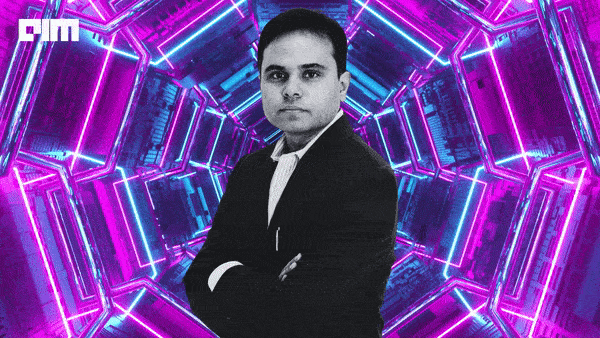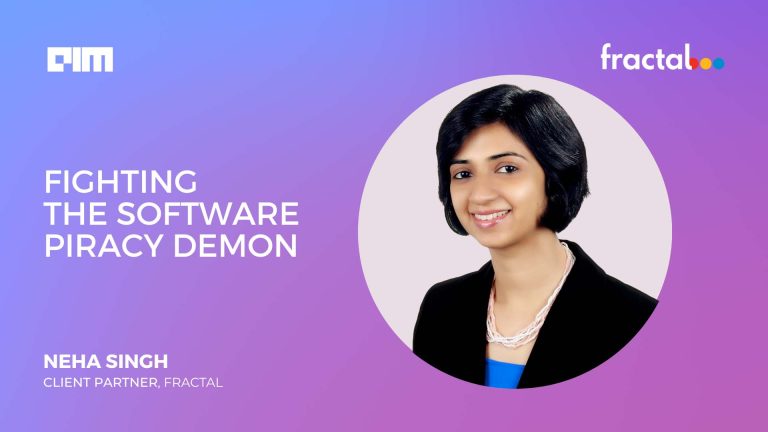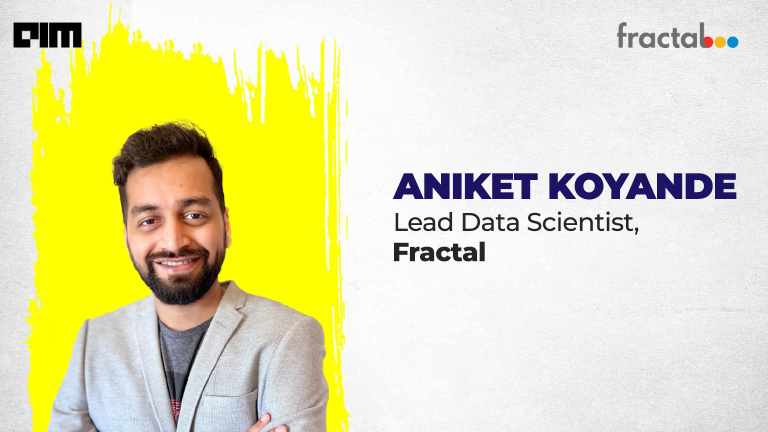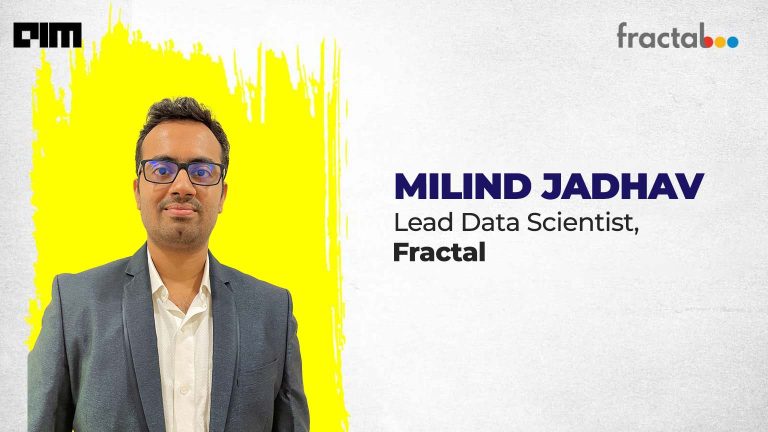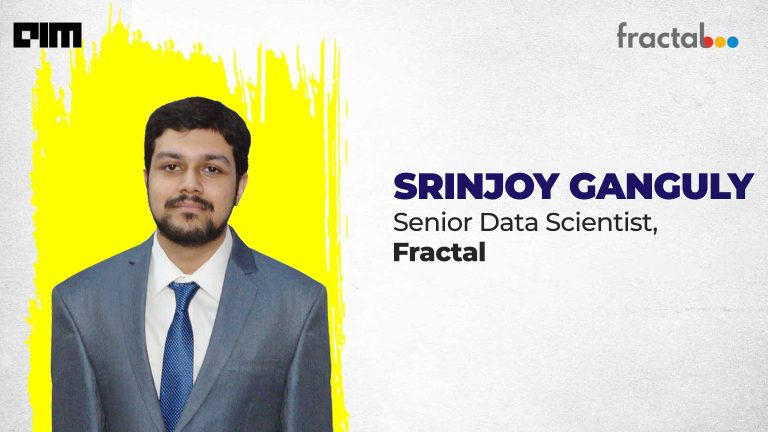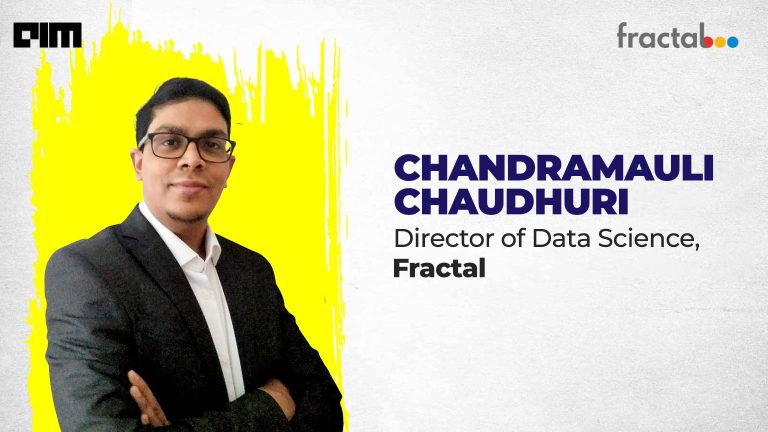2021 was one of the best years for India Inc., with the birth of 44 Unicorns with a total valuation of over $89 billion. Looks like 2022 will not disappoint either. Just a week into the new year, we already have two Indian companies entering the Unicorn club. The latest entrant is leading AI and advanced analytics company Fractal Analytics.
Founded in 2000, Mumbai and New York-based Fractal Analytics raised $360 million from TPG Capital Asia, a private equity firm. The company provides artificial intelligence and analytics services to several Fortune 100 firms, including the likes of Google.
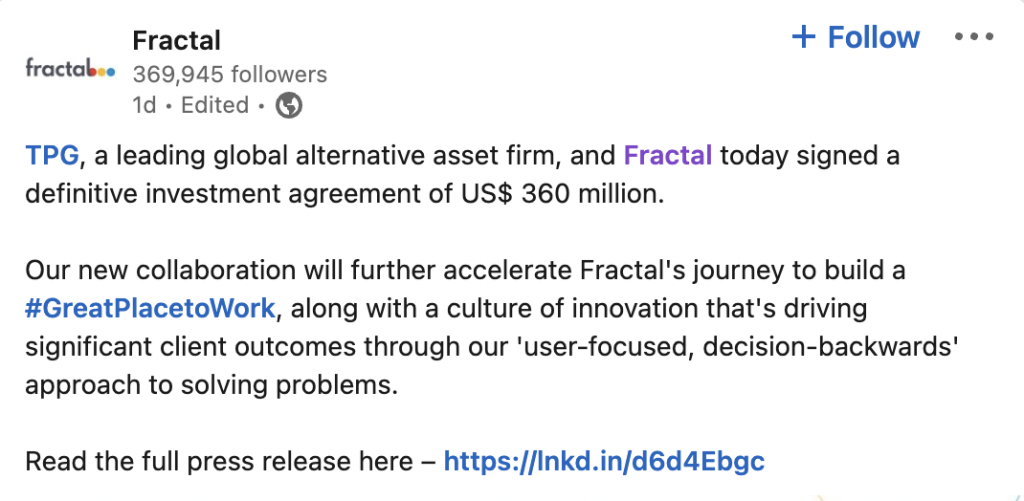
Analytics India Magazine got in touch with Fractal’s cofounder, Srikanth Velamakanni.
Now that Fractal Analytics has achieved the Unicorn status, what is the road ahead from here?
I think this is an important milestone. The road has been very clear to us – which is to build Fractal for the long haul. We have moulded Fractal to be a client-centric and people-oriented organisation.
I believe that AI is a huge, huge space; we’re just getting to the end of the first chapter of AI. Everything in the world will be infused with it, and all products will be infused with AI. All decisions we make will be augmented with analytics or with the algorithms that AI builds. And eventually, decisions will get automated, freeing up human time to do bigger and better things. So there’s a lot to play for. And my goal is to build Fractal for the long term in such a way that we can help fortune 100 companies in their journey of AI transformation that has anyway accelerated in a very significant way in a couple of years, especially after COVID. And we are doing our best to help them in that digital transformation journey.
How do you plan to utilise that fund, both in terms of the organisation and building a community of AI and advanced analytics?
Firstly, we are a profitable company. So we don’t necessarily need to raise money; we have always been profitable and somewhat conservative in that sense, relative to other hyper-aggressive startups. But we have been investing 15 to 20 percent of our revenues in R&D and product development. Technologies like quantum computing and computational neuroscience are at the top end of the research, followed by products.
We’ve been building several AI products and tools for the past many years investing 15 to 20 percent of our revenues in those areas. We think that requires capital, and we would want to allocate some of the capital that we raised for those purposes.
Secondly, we also want to serve our clients better to truly serve our clients, we have to have a portfolio of capabilities. And given how fast the portfolio of capabilities is expanding in the AI world, we have also been acquisitive. So if we feel we are not capable in a certain area, we look for really capable companies run by really spirited entrepreneurs and marry our vision with this.
So, those are the two areas where we continue to invest – product development and merger and acquisition side.
Please shed more light on the research and development efforts of Fractal Analytics.
I do believe that this is a large opportunity for India. India already produces the third-largest number of high-quality academic papers in the world of AI. I think one in three people in the AI one is probably an Indian, may not be living in India, but somewhere in the world. So India is already contributing in a significant way to the AI revolution.
We all have a really strong upbringing in math and science. So I think India has potential, what we have what we believe is that India will provide the talent for the AI revolution in the next few years. And we have to be the ones who are creating that talent. Some of the talents will automatically be created across many companies, but we want to be a net creator of talent.
To this end, we have developed a programme called the Imagineer programme by which we hired several bright people across the country to educate them on the basics of AI and become. These hires are expected to become a significant part of what Fractal is building today.
Secondly, we’re also looking at the IT services industry with four and a half million very capable workforce contributing. Many of them aspire to be in the data science and AI space. We are creating a crossover programme for them, so that they can learn the basics. They already have significant capabilities on the engineering and technology side.
Thirdly, I’ve been fortunate enough to contribute to Plaksha University, which is educating young people in data science and AI in our country. Our goal is also to support education in various ways so that we can create a more qualified talent base in the country.
I do believe education and entrepreneurship is the future of our country. Personally, I’ve been mentoring a bunch of entrepreneurs in the deep tech space; we would like to attract and encourage entrepreneurs and hopefully do business with entrepreneurs.
Fractal Analytics also incubates and invests in a lot of AI companies. Last year, Theremin.ai was hived off after receiving funds. How would your investment strategy be impacted after the fresh rounding of funding?
We have a programme called Ideas to Business. There are 3500 smart people at Fractal, who are always brimming with ideas, we also work with clients, and they provide some of the toughest challenges to work on. So our programme offers a great platform for these ideas.
Once we have new ideas, we can either let them be developed by other people or put our own research dollars to create and bring those ideas to life. So the aim of this programme is essentially is to find entrepreneurs with good ideas internally and see if we can give wings to their aspirations by providing some time and space initially, and then time space and money later on for them to build those ideas.
Once the ideas are in some shape, we can then take them to create a business out of that or hive it off as a separate unit, with the entrepreneurs having an equity stake in that company and then build that business from there.
And at some stage, we expect these businesses also to raise their capital. Fractal provides seed funding pre-series and even Series A, but we expect these companies to raise capital themselves from Series B onwards. This offers good external market validation. We can certainly incubate more ideas given, given the capital that we have and bring more ideas to life through this programme after this fundraiser.
How would having more Unicorns in the analytics field in India would further strengthen the domain?
In the AI and analytics spaces, specifically, if there are budding entrepreneurs, my recommendation would be to build a product. And I would also say, make it a very focused product. Think with the users in mind, work backwards from users and decisions, and build a very deep product that’s end to end. That’s the recipe for building scalable businesses.
I think it’s good that India is creating many unicorns. It is encouraging to see that many more entrepreneurs should decide to take the plunge and start entrepreneurship.
These Unicorns will also encourage bolder ideas because creating a Unicorn means that you have to target really large market space and come with something bold, new, and disruptive.
What are the lessons you learned over 20 years and that would probably help other AI analytics companies?
Scaling requires understanding the decisions or the use case and working backwards from there. Currently, there are good solutions to all problems or decent solutions to many problems, but they were built with the old stack in mind. What is possible today wasn’t was not possible ten years ago. Those solutions are too old. Once you rethink reimagine what that solution would look like, in today’s day and age, you will always find disruptive ideas coming through from that approach. So look at those disruptive, you know, use cases work backwards, get all the data.
So that’s my first suggestion is don’t try to be everything to everybody, pick one use case, and be something to those fuse users that you want to serve and work backwards from there. That is a recipe for a big, successful company. So that’s that would be my most important recommendation to budding entrepreneurs today.
Since you have been in the AI business for a very long time, so according to you, which phase are we in currently? Is it just the beginning? Or have we advanced to the next stage?
Let me tell you a little background – quick, 25-year history. I graduated with a degree in Electrical Engineering. It was the time of the ‘good old fashioned AI’. Machine learning and essentially AI was widely considered no less than ‘Voodoo science’.
Fast forward to 2006, there was a conference at Dartmouth commemorating 50 years of the term AI being coined. Interestingly, there was a lot of doubt about whether the rule-based AI is actually good or whether the neural networks etc, offer significant additional promise. There were very existential questions, but three years after that, in 2009, suddenly we started getting a lot of answers. For example, the labs of IBM And and Microsoft and Google started producing results in speech in areas of speech recognition, and deep learning started to emerge. That’s when big companies invested in deep learning; it really took off. In 2015, I saw corporate America, in general, warm up to AI and start investing behind AI, and by 2020-21, we see the rest of the world, including India, making significant investments.
So I feel this is just till the end of the beginning because AI has been in its infancy for a very long time. Now only ten years back, we really started to see the potential of AI to transform human lives. And so it’s the first end of the first 10 years of what would be a 100-year journey from here.


